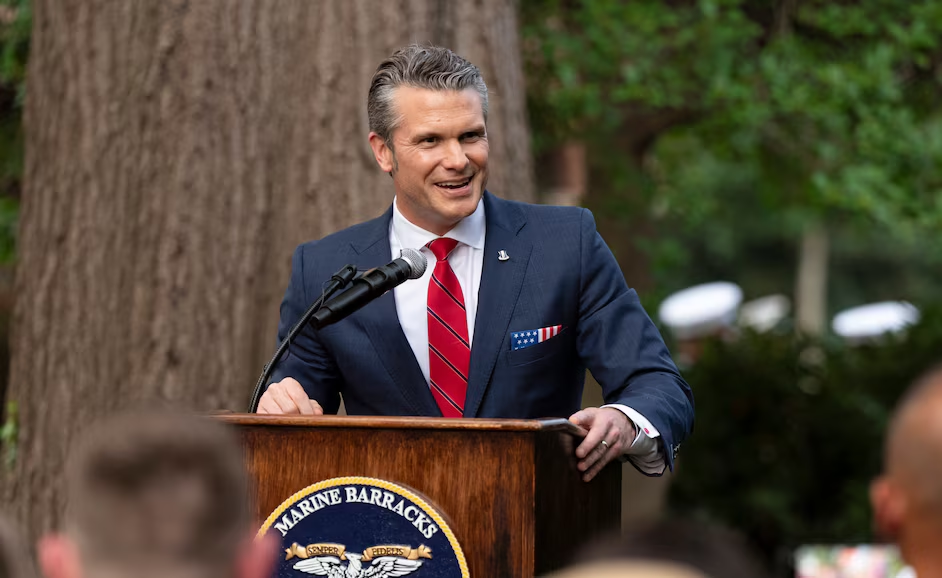No More Free Passes: Military Cracks Down on Who's Fit to Serve - Common Defense

In a decisive move to restore readiness and accountability in America’s armed forces, the Pentagon has released new rules that tighten the standards for medical waivers — a long-overdue step in ensuring that only the most capable individuals wear the uniform.
The changes were announced in a memo signed by Secretary of Defense Pete Hegseth, a staunch advocate for returning strength and discipline to military ranks.
The updated guidance eliminates the possibility of waivers for individuals suffering from conditions such as congestive heart failure, ongoing treatment for schizophrenia, and a history of paraphilic disorders.
Dennis Quaid’s #1 Warning for Americans
These medical issues, while serious in a civilian setting, pose unacceptable risks in the high-stress, high-stakes environment of modern warfare.
“America’s warfighters must be physically and mentally capable of performing their duties in the harshest of conditions,” Hegseth wrote.
“Severe underlying medical conditions introduce significant risks on the battlefield and threaten not only mission priorities, but also the health and safety of the affected individual and their fellow service members.”
This is more than a bureaucratic update — it’s a values statement. The move underscores a broader vision shared by President Trump and Secretary Hegseth: a military that prioritizes mission success, physical fitness, and mental resilience over social engineering or bureaucratic loopholes.
For years, waivers have been a way for applicants with disqualifying medical conditions to still find a path into the military. These have ranged from manageable ailments like asthma or nearsightedness to more complex psychological issues or injuries.
While some of these waivers served a purpose, many military insiders have raised concerns that lax standards were compromising unit cohesion and combat readiness.
Before this week’s changes, even serious conditions such as heart failure or active schizophrenia were technically eligible for waivers.
So too were individuals with histories of paraphilic disorders — defined as persistent sexual interest in atypical objects or activities — a startling inclusion when considering the close quarters and trust required in combat units.
The new policy puts an end to that ambiguity. It clearly states that multiple sclerosis, cystic fibrosis, past organ transplants, or suicide attempts within the past 12 months are now strictly disqualifying. These are not small details — they are measures that could very well save lives on future battlefields.
Additionally, the Pentagon has made it clear that for a limited number of conditions — such as having a missing limb, prior corneal transplant, liver or kidney disease, past psychotic disorders, or implanted cardiac devices — a waiver will now require approval directly from a military branch secretary.
In short, only the highest authorities can greenlight these rare exceptions, adding a new level of scrutiny to decisions that impact force readiness.
These common-sense standards come amid broader efforts during the Trump administration to refocus the military on lethality and deterrence, rather than progressive social policies.
One of the most significant and controversial moves earlier this year was the administration’s ban on transgender troops, requiring those currently serving to identify themselves and leave voluntarily, or face involuntary separation.
Critics decried the policy as discriminatory, but defenders like Hegseth — himself a combat veteran — argued that the issue wasn’t identity, but readiness and cohesion.
The new waiver rules appear to flow from that same guiding principle: that America’s military should be an elite force built on the best of the best, not a laboratory for social experimentation.
While some in Washington may balk at these changes, the reality on the ground is that war does not care about identity politics or inclusivity quotas.
It demands strength, endurance, mental clarity, and total trust among those in uniform. Anything less puts lives at risk and missions in jeopardy.
By cutting through red tape and reaffirming the military’s core standards, Pete Hegseth has signaled a welcome return to seriousness and strength — values that everyday Americans understand, appreciate, and expect from the men and women who defend our freedoms.